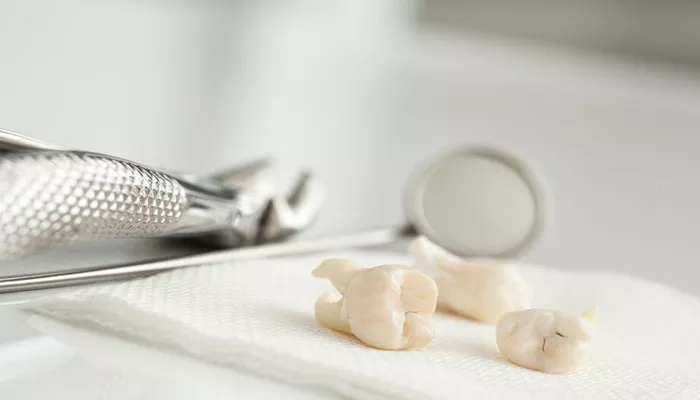Removing wisdom teeth is a common dental procedure, especially when these teeth fail to erupt properly or cause discomfort and other dental issues. After the surgery, maintaining oral hygiene is crucial to ensure proper healing and prevent complications such as infection. This guide aims to provide a detailed, science-based approach to keeping your mouth clean after wisdom teeth removal, including practical tips and advice.
Understanding the Importance of Post-Operative Oral Hygiene
The oral cavity is a warm, moist environment that is conducive to the growth of bacteria. After wisdom teeth removal, the surgical site is particularly susceptible to infection due to the disruption of the oral mucosa and the exposure of underlying bone and tissue. Maintaining good oral hygiene helps to reduce the risk of infection and promote healing.
Immediate Post-Operative Care
In the immediate post-operative period, which typically lasts for the first 24-48 hours after surgery, it is essential to follow specific instructions to keep the surgical site clean and promote healing.
1. Avoid Rinsing and Spitting
For the first 24 hours after surgery, patients should avoid rinsing their mouths vigorously or spitting, as this can disrupt the blood clot that forms over the surgical site. Disruption of the clot can lead to delayed healing and increased risk of infection.
2. Use a Gentle Syringe for Cleaning
After the initial 24 hours, patients can start gently cleaning the surgical site using a syringe filled with warm salt water. The salt water helps to reduce inflammation and promote healing while also cleaning away any food particles or debris that may have accumulated. It is important to use a gentle, non-forceful motion to avoid disrupting the healing tissues.
3. Soft Diet and Avoidance of Chewing on the Surgical Side
For the first few days after surgery, patients should stick to a soft diet to avoid putting undue pressure on the surgical site. It is also important to avoid chewing on the side of the mouth where the wisdom teeth were removed, as this can disrupt the healing process.
Transition to Normal Oral Hygiene Practices
As the healing process progresses, patients can gradually transition back to their normal oral hygiene practices, with some modifications.
1. Brushing with Care
Starting a few days after surgery, patients can resume brushing their teeth, but it is important to do so gently and avoid the surgical site for the first week or so. Use a soft-bristled toothbrush and gentle, circular motions to clean the teeth and gums. Avoid brushing too hard or too close to the surgical site, as this can irritate the healing tissues.
2. Flossing with Caution
Flossing can be resumed once the surgical site has healed sufficiently, but it is important to do so carefully. Avoid flossing too close to the surgical site for the first week or two, and use gentle motions to avoid disrupting the healing tissues.
3. Use of Antiseptic Mouthwash
Antiseptic mouthwash can be a useful tool in maintaining oral hygiene after wisdom teeth removal. It helps to reduce bacteria in the mouth and promote healing. However, it is important to choose a mild, non-alcoholic mouthwash and to use it as directed by the dentist. Avoid using mouthwash that contains harsh chemicals or strong flavors, as these can irritate the healing tissues.
Long-Term Oral Hygiene Practices
Maintaining good oral hygiene is not just important in the immediate post-operative period but also in the long term. Proper oral hygiene practices can help to prevent future dental issues and promote overall oral health.
1. Regular Dental Check-Ups
Regular dental check-ups are crucial for maintaining oral health. During these visits, the dentist can assess the healing process, check for any signs of infection or other complications, and provide personalized advice on how to maintain good oral hygiene.
2. Daily Brushing and Flossing
Daily brushing and flossing are the cornerstones of good oral hygiene. Brush your teeth at least twice a day with a fluoride toothpaste, and floss daily to remove plaque and food particles from between the teeth and under the gum line.
3. Avoidance of Sugary Foods and Drinks
Sugary foods and drinks can contribute to the formation of plaque and cavities. Limit the intake of sugary snacks and drinks, and opt for healthier alternatives such as fruits, vegetables, and water.
4. Regular Use of Antiseptic Mouthwash
Using an antiseptic mouthwash regularly can help to reduce bacteria in the mouth and maintain good oral hygiene. Choose a mild, non-alcoholic mouthwash and use it as directed by the dentist.
Conclusion
Maintaining good oral hygiene after wisdom teeth removal is crucial for proper healing and prevention of complications such as infection. By following the tips and advice outlined in this guide, patients can ensure that their mouths stay clean and healthy during the post-operative period and beyond. Regular dental check-ups, daily brushing and flossing, and the use of antiseptic mouthwash are all important components of a comprehensive oral hygiene routine. Remember, good oral hygiene is not just about looking and feeling good – it is also an important aspect of overall health and well-being.
Related topics:

